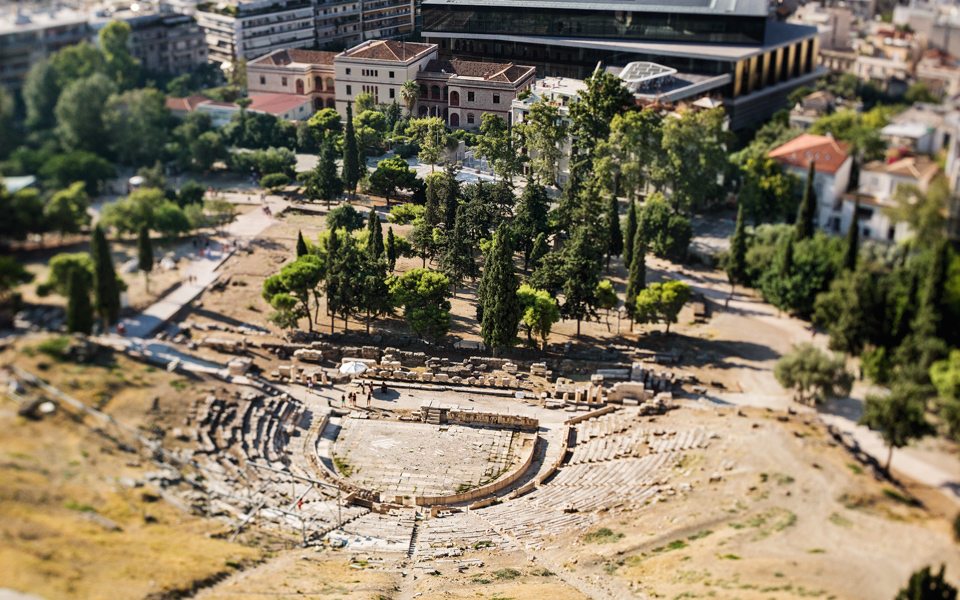The Secret Life of the Odeon of Herodes...
A monument of memory and music,...

Theater Of Dionysus
© Dionysis Kouris
Theatrical performances in Athens began in the late 6th century BC in the framework of religious festivals in honor of Dionysus, at the first theater in the history of European civilization, on the southern slopes of the Acropolis. The great works of outstanding tragedians (Aeschylus, Sophocles, Euripides) not only provided Athenians with a source of quality entertainment, but also indirectly disseminated among spectators the values of justice, democracy, belief in the gods and in the city’s time-honored institutions, while warning them of the dangers of extremist ideas and acts that undermined the binding structures of communities. Even criticism of the state and politicians (nowadays taken for granted) was a phenomenon that appeared here for the first time in history, through the comedies of Aristophanes. Other significant innovations included the financing of theatrical performances by wealthy citizens and the granting by the state of free admission to the poor. This latter was introduced by Pericles as one of the great achievements of democracy but he was accused by the opposition of pursuing populist policies with public money.
A monument of memory and music,...